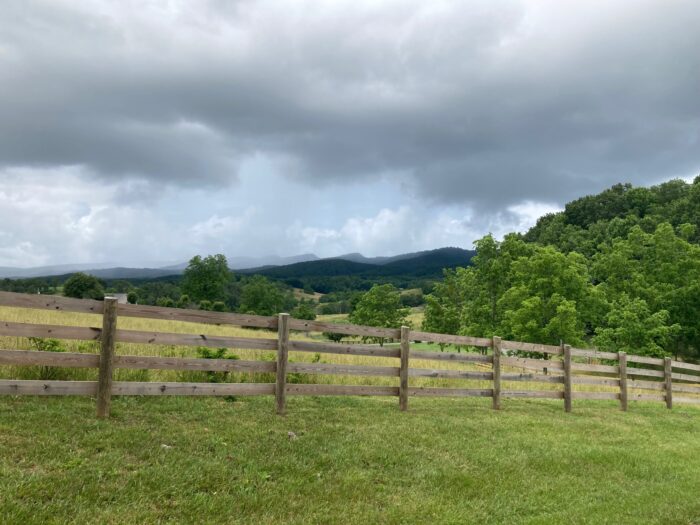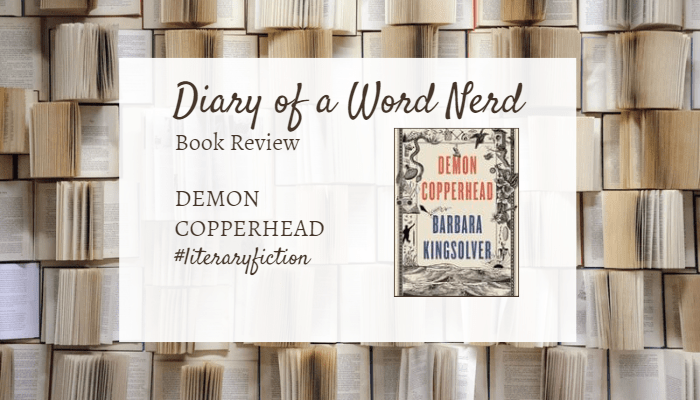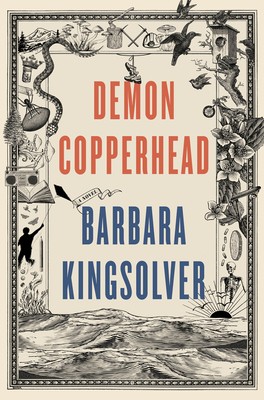I moved to Wythe County, Virginia 22 years ago. I live on a farm about an hour away from the coal fields of Lee County, where Barbara Kingsolver set her latest novel Demon Copperhead. I’m firmly entrenched in Appalachian and southwest Virginia culture, and while I like to think I’ve learned a lot about the people of the Virginia mountains, Demon Copperhead taught me even more. In writing Copperhead, Kingsolver (author of another influential book for me, The Poisonwood Bible) aspired to create the “great American Appalachian novel.” I think she succeeded, and I’m not the only one. Demon Copperhead was a Goodreads Choice Award nominee for 2022 and was recently awarded the Pulitzer Prize.
The Premise
Demon Copperhead is a close re-write of David Copperfield, Charles Dickens’ autobiographical novel about a young man navigating institutional poverty. Both books explore the role of class and upbringing, but Kingsolver hits on particularly modern challenges, including the pitfalls of foster care and the influence of the opiate marketing machine on the people of southwest Virginia.
Set in the 1990s, Kingsolver’s novel follows Demon, a boy born on the floor of a single wide trailer to a mother plagued by drug addiction and bad choices. Demon eventually lands in the foster care system, finding himself living with people who often do not care about him, just the check he brings in and the cheap labor he can provide. While bouncing through foster homes, Demon encounters a rotating crew of social workers and learns at a young age how to numb his pain with drugs.
Demon painfully and vividly describes his embarrassment at school, branded as poorest of the poor and a foster. He often talks about an unmet hunger gnawing at his soul, and he resents the “city folk” who have used and abandoned the people of Lee County and rural places like it. He sketches comic book super heroes who come to save the people of his community. Once he gets to high school, Demon earns some respect in the cherished lights of the high school football field, but an injury sidelines his athletic promise and threatens to ruin his life.
What I liked
The prose. Specifically, Demon’s voice. Although Demon Copperhead has lots of dark moments, Demon’s voice carries the novel. He is witty, observant, and unapologetic. A review on Goodreads called Demon’s voice “unauthentic.” I must disagree. I hear echoes of Demon’s words in conversations at my local Walmart, greetings at the Farmer’s Market, and discussions of local gossip, politics, and sports.
Demon Copperhead brought to light much I hadn’t yet grasped about the the people and culture of Appalachia. Lee County, the book’s setting, sits at the far west edge of Virginia, with Kentucky on its western border and Tennessee to its south. This community has long been manipulated by outside powers. The coal industry took advantage of the natural resources of the mountains, leaving the people with black dust in their lungs and little financial gain to show for their hard work. Then, the opioid industry exploited the pain and suffering of the Appalachian people. Like so many issues today, opioid addiction is a complicated problem. Kingsolver’s writing brings the multiple facets of addiction into the light.
Even though Demon faces significant challenges, he finds friends and role models to help him navigate his troubles. The novel shows how the good intentions and efforts of just a few people in Demon’s life have a lasting influence on his choices, and subsequently, his survival.
Demon finds comfort and solace in nature, and the novel highlights one of the region’s best assets: its natural beauty. The rolling mountains of Appalachia, green in summer and vibrant in fall, truly inspire awe and wonder. Many mornings I walk my dogs down the quiet country road by my farm and smile with joy at the beauty and texture of the land that surrounds me.

When I was in college, I brought my roommate, a native of a small town on the southern Virginia border, to the booming explosion of Northern Virginia, where I grew up. When the first of hundreds of condo and office buildings broke the horizon as we traveled east on Route 66, my friend grabbed my arm and gasped. She had never seen so much development that went on for so long. Kingsolver does a great job of capturing this shock and horror of city living.
When visiting Atlanta, Demon says:
Hundreds of people passed by outside, hugging their coats around them, looking at their feet walking fast. I wondered what they were taking for the brain alarm bell that goes off in a place like this, where not one thing you see is alive, except more people, everything else being dead: bricks, cement, and steel. No morning songs but car horns and jackhammers, all the mountains of steel beam construction. And this, June informed us, was the good part of the town.
Demon Copperhead, Barbara Kingsolver
What I didn’t like
The story dragged for me at times. While Demon is an engaging hero, and I always pulled for him, I would have appreciated a tighter plot. Demon Copperhead is truly a character study, not just of Demon, but of the culture and morale of a people often disrespected and undervalued by “the powers that be.” With 546 pages and some heavy topics, Demon Copperhead demands a serious reading commitment. And while the dark themes can depress you, I encourage you to push through to the end. There is light at the end of Demon’s journey.
Word Nerd Recommendation
If you like historical fiction, learning about different cultures, or examining the various pieces of a societal problem like addiction, I encourage you to read Demon Copperhead. FYI, Kingsolver is fun to follow on Instagram.
Have you read Demon Copperhead? What did you think? Can you recommend other novels that gave you insight into a culture or social dilemma?
Thanks for getting nerdy with me!



